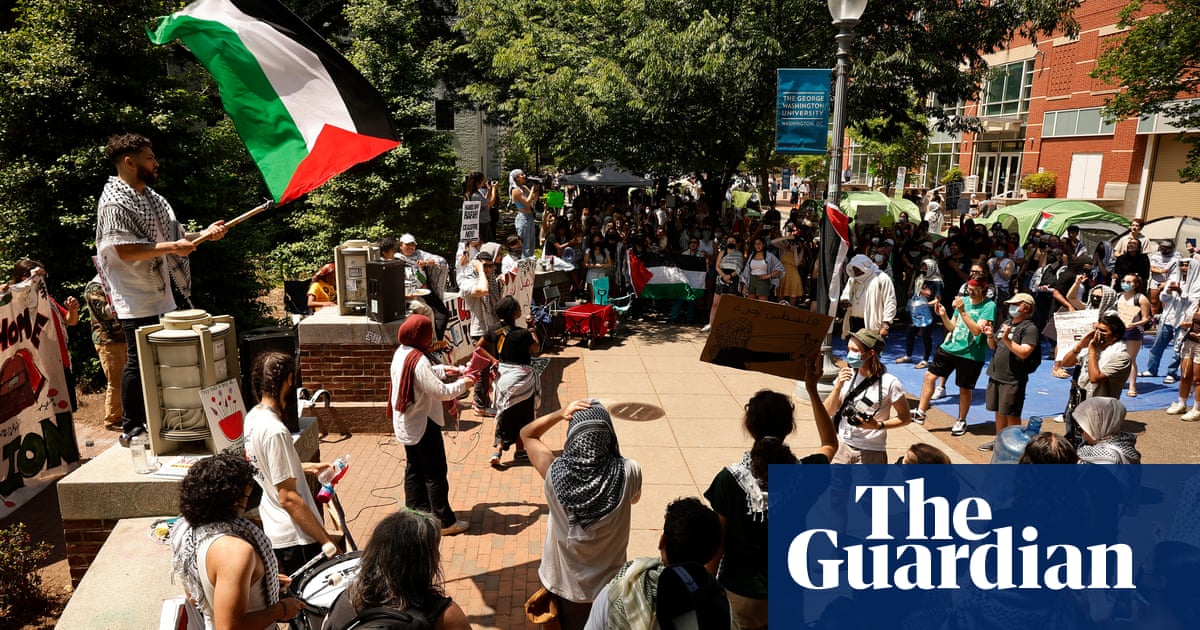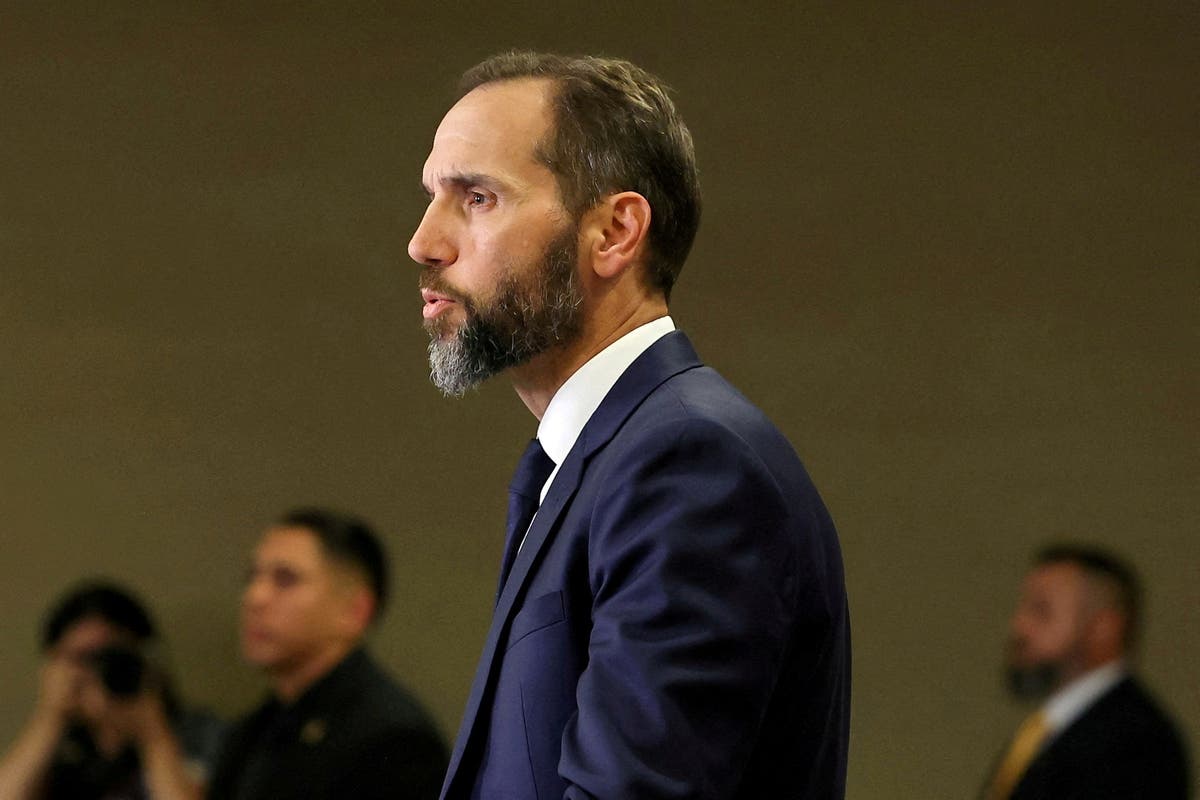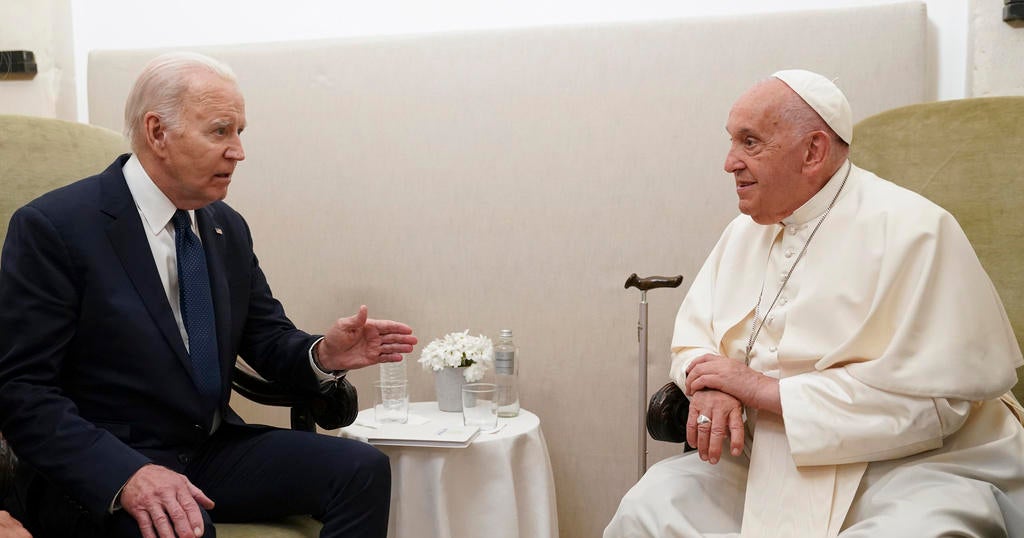World
Trump likely to use antisemitism claims to launch crackdown on US universities

US universities are bracing for funding cuts and investigations under the incoming administration, as Donald Trump and his advisers have billed them as an “enemy” and made them a prime target of their rightwing, anti-woke crusade.
While attacks over critical race theory and diversity and inclusion initiatives have long been part of conservative campaigns against higher education, experts say that the nationwide campus protests against Israel’s war in Gaza over the last year, and a push to crack down on them that has often attracted support from Democrats, will probably provide the incoming administration their opening salvo.
“There are political actors who have been obsessed with the idea of fundamentally transforming American higher education, and they have jumped into the space made open by accusations of antisemitism,” said Isaac Kamola, a political science professor at Trinity College whose research focuses on conservative efforts to undermine higher education.
Trump and his backers have made no secret of their plans, many detailed under Project Esther, a blueprint by the rightwing Heritage Foundation aimed at “dismantling” the US pro-Palestine movement “when a willing Administration occupies the White House”.
Universities will probably be the main battleground. While Trump has repeatedly floated the idea of eliminating the education department altogether, some of his advisers have expressed hope he will use its tools, like the anti-discrimination Title VI process, to eradicate the pro-Palestine movement on US campuses under the guise of fighting antisemitism.
Last month, the Guardian published an exclusive video of a meeting between the House majority leader, Steve Scalise, and the powerful pro-Israel lobby group the American Israel Public Affairs Committee (Aipac), in which Scalise detailed plans to pull billions of dollars of federal funding from some of the most prestigious universities in the country, and to strip them of accreditation to punish them for allowing pro-Palestine protests on their campuses.
Kenneth Marcus, a former assistant secretary of education under Trump and an active proponent of the controversial International Holocaust Remembrance Alliance (IHRA) definition of antisemitism, told Jewish Insider last week that he expects the next administration will “take much more seriously the prospect of denying federal funds to colleges and universities that violate the rights of Jewish and other college students”.
Free speech advocates warn of an impending crackdown following a year in which public pressure and congressional hearings have already led to the resignation of several university presidents, the disciplining of faculty and students, and thousands of arrests.
“We’ll see more of that, unfortunately, and more direct attempts to pressure universities to squash protests, more of these McCarthyite hearings, more threats to pull school funding,” Radhika Sainath, a senior staff attorney at Palestine Legal, a group that has sued several universities over the suppression of pro-Palestine speech, told the Guardian.
A bipartisan effort
Trump indicated in his first term how he would define antisemitism to threaten colleges. In 2019, he signed an executive order requiring university administrators to “consider” the IHRA definition of antisemitism or face consequences.
It was a vague and legally dubious directive, constitutional experts say, but it in effect encouraged university administrators to adopt the definition and a series of examples attached to it. One of those examples, for instance, posits that claims that the state of Israel is a “racist endeavor” are antisemitic.
Joe Biden left the order in place. Since 7 October 2023, his education department’s office for civil rights has launched more than 100 investigations, the vast majority over allegations of antisemitism, and several after claims filed by conservative groups. At least 60 universities remain under investigation.
“Targeting ‘woke’ education is catnip for the right right now, and the fact that they used antisemitism, or alleged antisemitism, as the tool to do so enabled them to mitigate to a great degree Democratic opposition and actually get Democrats to support them in this agenda,” said Lara Friedman, the president of the Foundation for Middle East Peace, who tracks efforts to use antisemitism as a pretext to punish critics of Israel.
Kamola, the Trinity professor, told the Guardian that the exploitation of antisemitism to threaten universities’ independence is an extension of earlier, organized campaigns which already saw so-called “divisive concepts” legislation targeting discussion of race and initiatives promoting inclusivity on campuses.
“That doesn’t mean that there aren’t issues of antisemitism on college campuses and that those shouldn’t be taken very seriously,” he added. “But there are a number of groups that have long been fighting the culture war in the name of anti-critical race theory and anti-diversity and inclusion, that after October 7 just pivoted to antisemitism.”
‘A sledgehammer’
Free speech advocates expect the IHRA definition to be “used as a sledgehammer” in the incoming administration’s attacks on pro-Palestine activism, said Sainath, of Palestine Legal.
Already, some universities have heeded the definition’s spirit in drafting their own codes. New York University, for instance, earlier this year issued new university policies citing federal guidance and in effect extending equal rights protections to Zionism, a political ideology.
In May, the House of Representatives passed the Antisemitism Awareness Act, which codifies Trump’s executive order into federal law. The Democratic Senate majority leader, Chuck Schumer, has pledged to bring it to a vote before the Senate comes under Republican control in January.
On Thursday, the American Civil Liberties Union issued an open letter denouncing the IHRA definition as “overbroad” and encouraging senators to reject it. “Enshrining this definition into regulation would chill the exercise of First Amendment rights and risk undermining the Department of Education’s legitimate and important efforts to combat discrimination,” they wrote.
Vera Eidelman, a staff attorney with the ACLU’s Speech, Privacy, and Technology Project, told the Guardian that the examples included in the IHRA definition which conflate antisemitism with criticism of Israel are protected by the first amendment.
“Claiming that the existence of the state of Israel is a racist endeavor, or drawing comparisons of contemporary Israeli policy to that of the Nazis, whatever you think of the merits of that speech, it’s clearly political speech,” she said.
The only federal judge asked to weigh in on the question so far agreed. Last month, US district court Judge Robert Pitman ruled that a March 2024 directive by the Texas governor, Greg Abbott, instructing all public universities in the state to incorporate the IHRA definition in their policies amounted to “viewpoint discrimination”.
A chilling effect
Free speech advocates hope that additional efforts to impose the IHRA definition would also fail in court, but they warn that it is already having an effect. While the federal government has never cut funding to universities over antisemitism claims, Trump’s threats on funding and accreditation have administrators on high alert.
“If I’m a general counsel at a university being told by the federal government, ‘Hey, if you don’t get this right, your federal funding is on the line’ … What are you going to choose?” Tyler Coward, lead counsel at the campus free speech group Foundation for Individual Rights and Expression (Fire) told the Guardian.
“You’re going to choose censorship to save your federal dollars, and that is a really awful position to put our institutions in.”
For faculty and students, the prospect of the incoming administration doubling down on its attacks on what it calls antisemitism are cause of growing anxiety.
“You could be a scholar of the Middle East, Palestinian history and literature, or Israeli history and literature, and what you know to be true from your extensive, decades-long scholarship, you now have to think, ‘Well, these claims we’re making that are fact-based and based on evidence will, by this politically ideological definition, be deemed antisemitism,” said Kamola, the political science professor. “It creates an incredible chilling effect.”
Sainath, of Palestine Legal, said that disciplinary charges, investigations, and a general climate of repression have taken a toll on student organizing, manifesting in quieter campuses compared with last year.
But she and others expressed hopes that as Americans prepare to fight the incoming administration’s crackdown on civil liberties across the board, they will also support efforts to protect pro-Palestine speech in higher education.
“The movement is not going to stop speaking out just because Trump is in office.”










